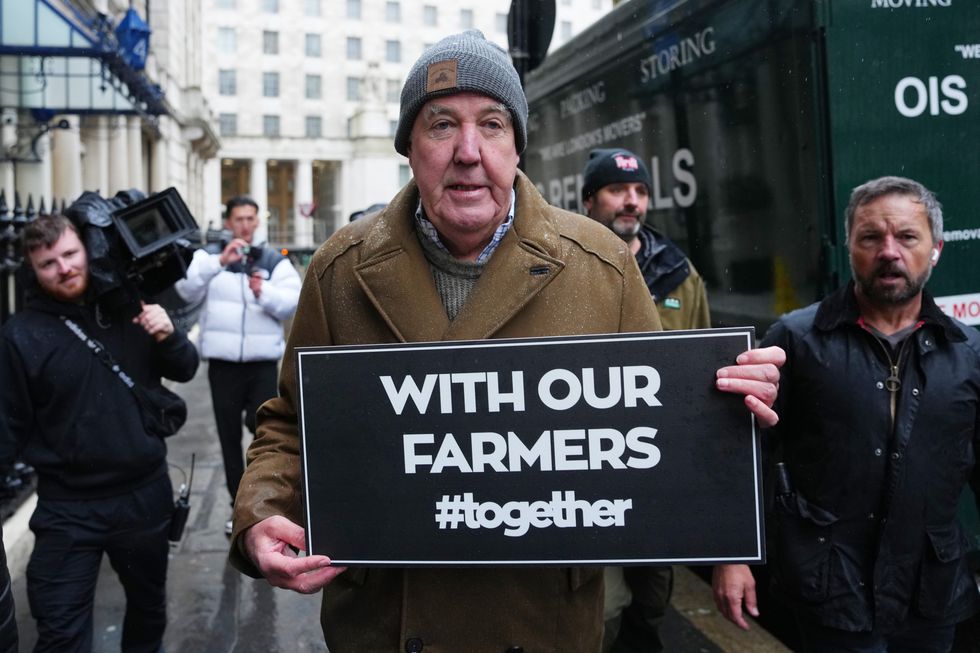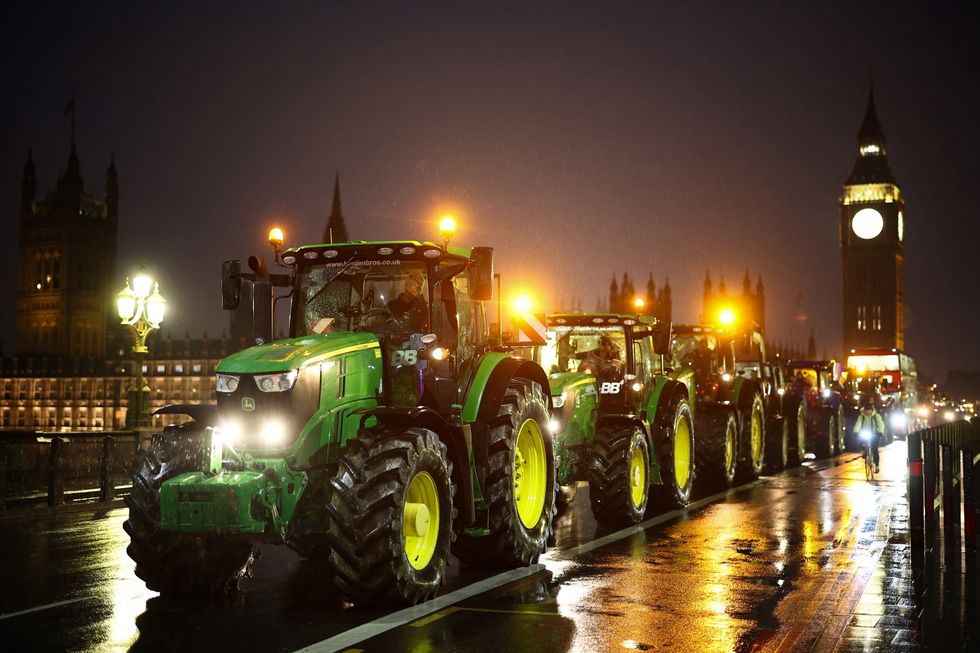The government is pushing rural Britain to the brink.
A few days ago, hundreds of tractors drove up Whitehall in the latest of many protests against the UK Government’s assault on farming. But still, the Labour Government won’t listen.
Recent reports have claimed that the Labour Minister for Food, Farming and Fisheries said at the Norfolk Farming Conference that farmers are “not high on the pecking order” of the government. This is the man who is supposed to be batting for our farmers in Government.
In his first three months as Environment Secretary, Steve Reed was reported to have visited one single farm. Clearly, he had better places to be.

I applaud the work of Jeremy Clarkson in educating the public on the issues affecting farmers.
Getty Images
A recent visit Keir Starmer made to a housing development was cut short when farmers arrived to protest against Labour’s tax on the family farm.
Following the visit, the Prime Minister said people had to choose between cutting NHS waiting lists, or “tax breaks for farmers.” This sort of false dichotomy shows how Labour is waging class war on rural communities. But it also shows how little they understand farming. Keeping family farms alive through inheritance exemptions helps to feed our nation. It is part of a sustainable economy.
But this is what we’ve come to expect from a government full of people with little practical experience on farms, or indeed anywhere outside of politics, law, unions, and questionable stints in the Bank of England.
Farmers don’t have a voice. The fact is most political commentators and journalists who report on what goes on in Westminster live in or near London. Other than GB News, very few news organisations gave the recent farming protests the coverage they warranted.
Farming is, to many people in the media and political class, an alien lifestyle. Indeed, I was struck by how, after Jeremy Clarkson made the fantastic Clarkson’s Farm, far more people I encountered in political life felt able to talk to me about farming.
Before that very popular show, many people wouldn’t have known one end of a cow from the other. And it’s hard to blame them. I applaud what Clarkson and GB News have done to educate people on what farming is all about, but it does show how little media attention, from news reports to BBC-commissioned programmes, was given to farming, the importance of farming, and the role of farming in our food security.

Farmers will make their voices heard as those at the top fail to represent them.
Getty Images
Likewise, often the politicians closest to power, particularly when power is in Labour’s hands, are from London, or live in London.
Farmers do not have a voice in the same way human rights lawyers form North London do. If you go around the Cabinet table, you’d be hard pressed to find a farmer, but you’d be flush with HR-types, union people, career politicians and lawyers. So is it any wonder that the only way farmers can have their voices heard is when they bring their tractors to Whitehall or Cardiff Bay?
What GB News understands, but so many don’t, is that food security is national security.
We’re right to worry about what percentage of GDP we are spending on our defences, but you can have all the tanks and drones you want, what use are they if people don’t have full bellies at home?
So Keir Starmer may have to get used to farmers protesting at his visits. When farmers don’t have a voice at the Cabinet table, when much of the media doesn’t represent them, and when their livelihoods are being threatened, farmers will make their voices heard.